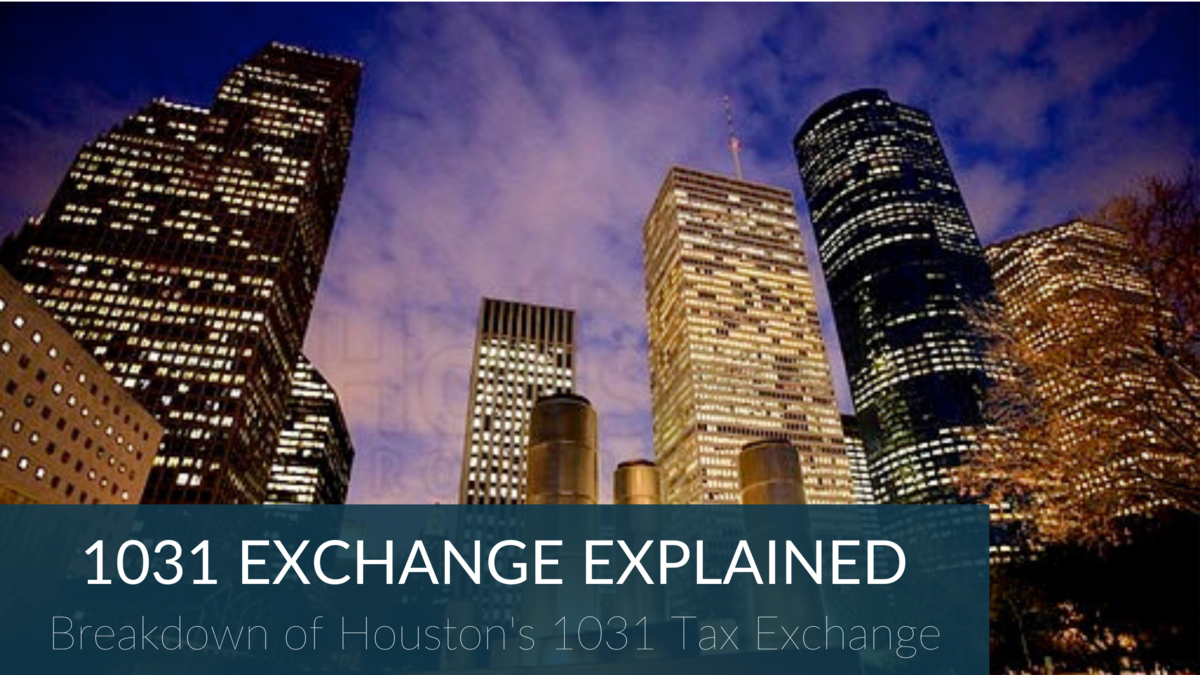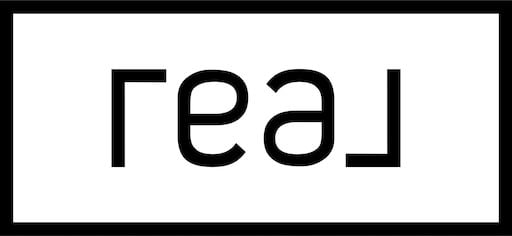1031 Exchange Houston Explained
See a complete breakdown of Houston's 1031 Tax Exchange and get tax benefits.

Property owners that are looking to sell in Houston, Texas, may benefit from a 1031 exchange. Learn about 1031 tax exchanges here!
The IRS regulation "1031" provides specific tax benefits for homeowners, whereby selling one home and then purchasing another within 180 days, can be treated as an exchange, versus a sale that would be treated as capital gains income.
“Paige and The Houston Properties Team helped our family buy and sell five different homes. She’s the best realtor in Houston because she’s extremely knowledgeable and very candid. On the buyer side, she will absolutely tell you what’s wrong with a property and give you all of the reasons not to buy it. She has the best marketing of anyone we’ve ever seen and she knows everything about the best neighborhoods in Houston. She is THE BEST Houston Realtor!” – Scott & Debi Gordon
Table of Contents
- Exchange Treatment
- 1031 Exchange Houston Rules
- Arm's Length Transaction
- 1031 Exchange Houston Timelines
- The Best Houston Realtor to Sell Your Home
Exchange Treatment

If you’d like to learn more on how to qualify your property for the 1031 exchange, please contact Paige Martin at [email protected], ranked #1 Individual Agent with Keller Williams in Houston and #10 in the United States.
Normally, once a property is sold, the owner is taxed on the gains made from the sale of a property. Gains are the difference between what the property is sold for vs. what you originally bought it for.
Instead, if the property is "exchanged," the IRS rules allow for the deferral of owed capital gains taxes. This results in substantial savings that one can reinvest or use as leverage.
1031 Exchange Houston Rules

"Paige Martin and the Houston properties team are an excellent resource. You definitely want her on your team when you decide to buy or sell." -Ian Ivy (Google Review)
The 1031 Tax Exchange rules are outlined in the U.S. tax code and treasury regulations. In order for a property to be eligible for these types of exchanges, the property must fall within specific boundaries.
The first rule is that the property that is being exchanged must be “like” property. For instance, any property that is located within the United States is considered “like-kind." Property outside of the United States typically can not be included in 1031 exchanges.
Additional rules specify that the property to be acquired must be of equal or greater value than the property that it is being exchanged for.
There is an exception rule within the 1031 Tax Exchange. Certain types of property may be excluded, even if they are located within Houston or other areas of the United States.
These exclusions include property that is being held for sale for a profit, inventories, stocks, bonds, and notes, other securities or evidence of indebtedness if the owners are looking at a partnership, and other beneficial interests.
Then there is the exchange component of the 1031 Tax Exchange. For property owners to be eligible for the 1031 Tax Exchange, the property must actually be exchanged instead of the property being sold and then the owner using the money from the sale of that property to purchase another.
That type of transaction would be viewed as a simple sale of property and would not be eligible for a tax exchange.
Arm's Length Transaction

Have questions about Houston property taxes? Please contact Paige Martin at [email protected], ranked #1 Individual Agent with Keller Williams in Houston and #10 in the United States.
Another rule written into the U.S. tax code states that any funds from the original sale of property must not go to the property owner or the property owner’s agent. Instead, they must be given to a qualified intermediary. A qualified intermediary is generally an individual or company that works exclusively with dealing with 1031 tax exchanges.
They must have no other contact with the owner other than serving as a qualified intermediary for the exchange that is about to take place. The intermediary will be responsible for holding funds related to the exchange and for distributing them as needed. If, in the end, there are proceeds that are rightfully the owners, those funds will be taxed.
1031 Exchange Houston Timelines

"The Houston Properties Team was absolutely amazing. I had initially listed with a different realtor that was recommended by a neighbor with very poor results. It was even more difficult because I was no longer in Houston and the trust I had put in the other agent was definitely taken advantage of. However, when I found Kim with the Houston Properties Team, all that changed. I was informed throughout the process and when she promised something would be done, it was. Before the experience with her, I swore off ever even considering purchasing a home again. She restored my faith in the real estate world." – Jeanette (Google Review)
In addition to the different rules that accompany a 1031 tax exchange, there are also certain timelines that must be adhered to.
There are two timelines specifically that must receive particular attention. The first timeline is the Identification Period. This refers to the amount of time that a property owner has to find replacement properties that he is interested in purchasing. This time period is within 45 days of selling the original property.
The 45 days are 45 days exactly and include holidays and weekends. This timeline will never be extended, and if an owner cannot find replacement properties within that time, the property that had been sold will no longer be eligible for a 1031 tax exchange.
The other timeline property owners must concern themselves with is the exchange period timeline. This refers to the period of time that a property owner selling his property must become the owner of another property. The time period for this is 180 days from the time the original property is sold.
The time period is over on the date the property is fully relinquished or when the person’s tax return for that current year is due, whichever date comes first.
Property owners in Houston, Texas, may want to further investigate 1031 Tax Exchanges to see if they are eligible for tax benefits. It’s important to fully understand this tax code to ensure that you meet all the rules and requirements that will make you eligible.
Note: the information presented here is accurate at the time of writing but should not be officially relied upon for specific transactions or considered official tax advice. Please consult a tax advisor prior to any specific transactions or portfolio changes.
The Best Houston Realtor to Sell Your Home

The Houston Properties Team has a well-defined structure based on the individual strengths of each member. Each member is a specialist in their role – which is why our homes sell faster and for more money than average.
Paige Martin, Broker Associate with Keller Williams Realty, and the Houston Properties Team are ranked among the top residential Realtors in the world.
They have been featured on TV and in dozens of publications, including The Wall Street Journal, Fortune Magazine, Reuters, Fox News in the Morning, Money Magazine, Houston Business Journal, Houstonia, and Houston Chronicle.
Paige Martin was just ranked as the #5 agent in the world with Keller Williams, completing over $1 Billion in Houston residential real estate sales.

Recent awards include:
- 2022: #1 Residential Real Estate Team by Sales Volume, Houston Business Journal
- 2021: Best Real Estate Teams in America, RealTrends.com
- 2021: Top 100 Women Leaders in Real Estate of 2021
- 2021: America’s Top 100 Real Estate Agents
- 2021: Top Real Estate Team (Houston Properties Team), Houston Business Journal
- 2021: Best Houston Real Estate Team, Best of Reader’s Choice
- 2021: Top Real Estate Team (Houston Properties Team), Houston Business Journal
- 2021: #1 Real Estate Team, Keller Williams Memorial
- 2020: America’s Best Real Estate Teams, Best of America Trends
- 2020: Best Houston Real Estate Team, Best of Reader’s Choice
- 2020: Top Real Estate Team (Houston Properties Team), Houston Business Journal
- 2020: #6 Individual Agent, Keller Williams, Worldwide
- 2020: #1 Individual Agent, Keller Williams, Texas (Top Keller Williams Realtor)
- 2020: #1 Real Estate Team, Keller Williams Memorial
- 2019: Top Residential Realtors in Houston, Houston Business Journal
- 2019: America’s Best Real Estate Agents, RealTrends.com
- 2019: #5 Individual Agent, KW Worldwide
- 2019: #1 Individual Agent, KW Texas
- 2018: #5 Individual Agent, Keller Williams, Worldwide
- 2018: #1 Individual Agent, Keller Williams, Texas
- 2018: #1 Individual Agent, Keller Williams, Houston
- 2018: America’s Best Real Estate Agents, RealTrends.com
- 2018: Top 25 Residential Realtors in Houston, Houston Business Journal
- 2018: Texas’ Most Influential Realtors
- 2017: #1 Individual Agent, Keller Williams, Texas
- 2017: #1 Individual Agent, Keller Williams, Houston
- 2017: #10 Individual Agent, Keller Williams, Worldwide
- 2017: America’s Best Real Estate Agents, RealTrends.com
- 2017: Top 25 Residential Realtors in Houston, Houston Business Journal
- 2017: Texas’ Most Influential Realtors
- 2016: #1 Individual Agent, Keller Williams, Texas
- 2016: #1 Individual Agent, Keller Williams, Houston
- 2016: #20 Individual Agent, Keller Williams, Worldwide
- 2016: Texas’ Most Influential Realtors
- 2016: Top 25 Residential Realtors in Houston, HBJ
- 2016: Five Star Realtor, Featured in Texas Monthly
- 2016: America’s Best Real Estate Agents, RealTrends.com
- 2015: #9 Individual Agent, Keller Williams, United States
- 2015: #1 Individual Agent, Keller Williams, Texas
- 2015: #1 Individual Agent, Keller Williams, Houston
- 2015: America’s Best Real Estate Agents, RealTrends.com
- 2015: Top 25 Residential Realtors in Houston, HBJ
- 2015: Five Star Realtor, Texas Monthly Magazine
- 2014: America’s Best Real Estate Agents, RealTrends.com
- 2014: #1 Individual Agent, Keller Williams Memorial
...in addition to over 318 additional awards.
Paige also serves a variety of non-profits and civic and community boards. She was appointed by the mayor of Houston to be on the downtown TIRZ board.
Benefits Of Working With The Houston Properties Team

Our team, composed of distinguished and competent Houston luxury realtors, has a well-defined structure based on the individual strengths of each member.
We find the team approach as the most effective way to sell homes. We have dedicated people doing staging, marketing, social media, open houses, and showings. Each Houston Properties Team member is a specialist in their role—which is why our homes sell faster and for more money than average.
The benefits of working with a team include:
- the ability to be in two or three places at one time; a member can handle showings while another answer calls
- collective time and experience of members
- targeted advice and marketing of agent experts in your area
- competitive advantage by simply having more resources, more ideas, and more perspectives
- a “checks and balances” system; selling and buying a home in Houston is an intensely complex process
- more people addressing field calls and questions from buyers and agents to facilitate a faster, successful sale
- efficient multi-tasking; one agent takes care of inspections and repair work, while another agent focuses on administrative details
- multiple marketing channels using members’ networks
- constant attention: guaranteed focus on your home and your transaction
- lower risk for mistakes. Multiple moving parts increase oversights. A team approach handles these “parts” separately
- flexibility in negotiation and marketing
- better management of document flow
- increased foot traffic through more timely and effective showing schedule coordination; and
- increased sphere of influence and exposure to more potential buyers.
To meet all the award-winning members of the Houston Properties Team, please go here.


